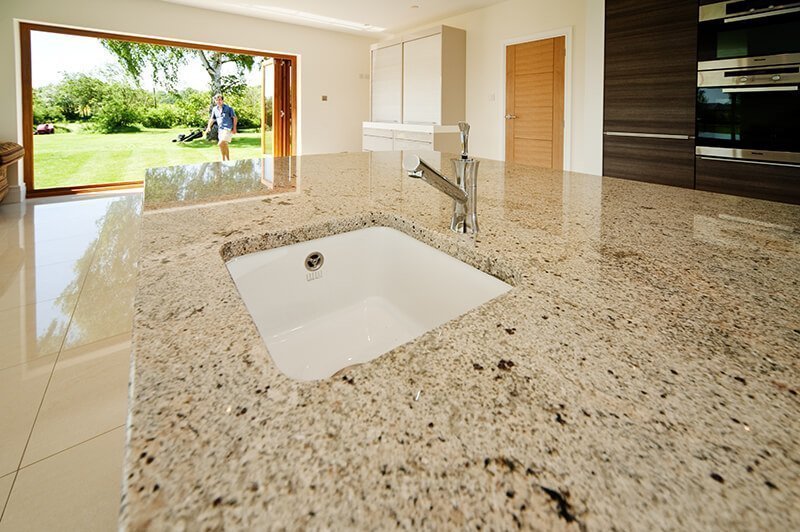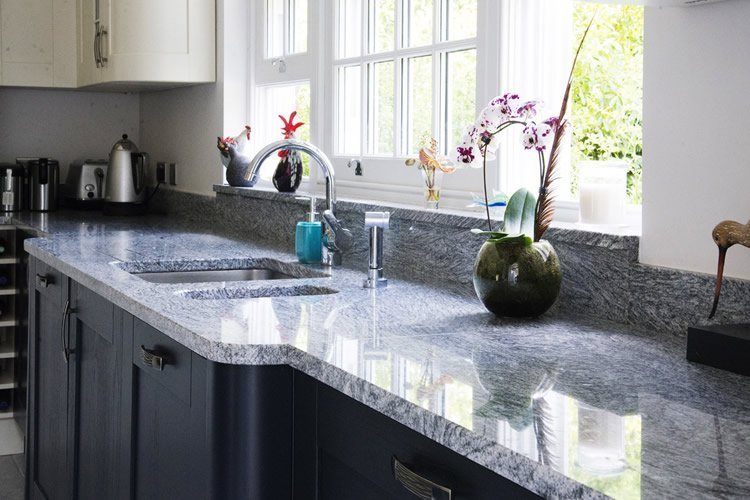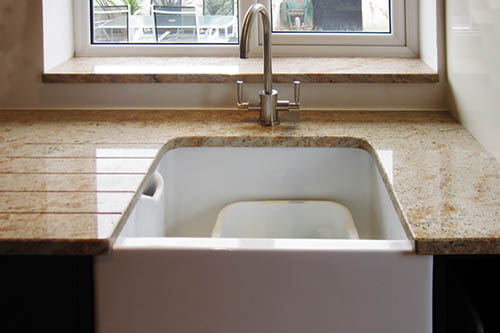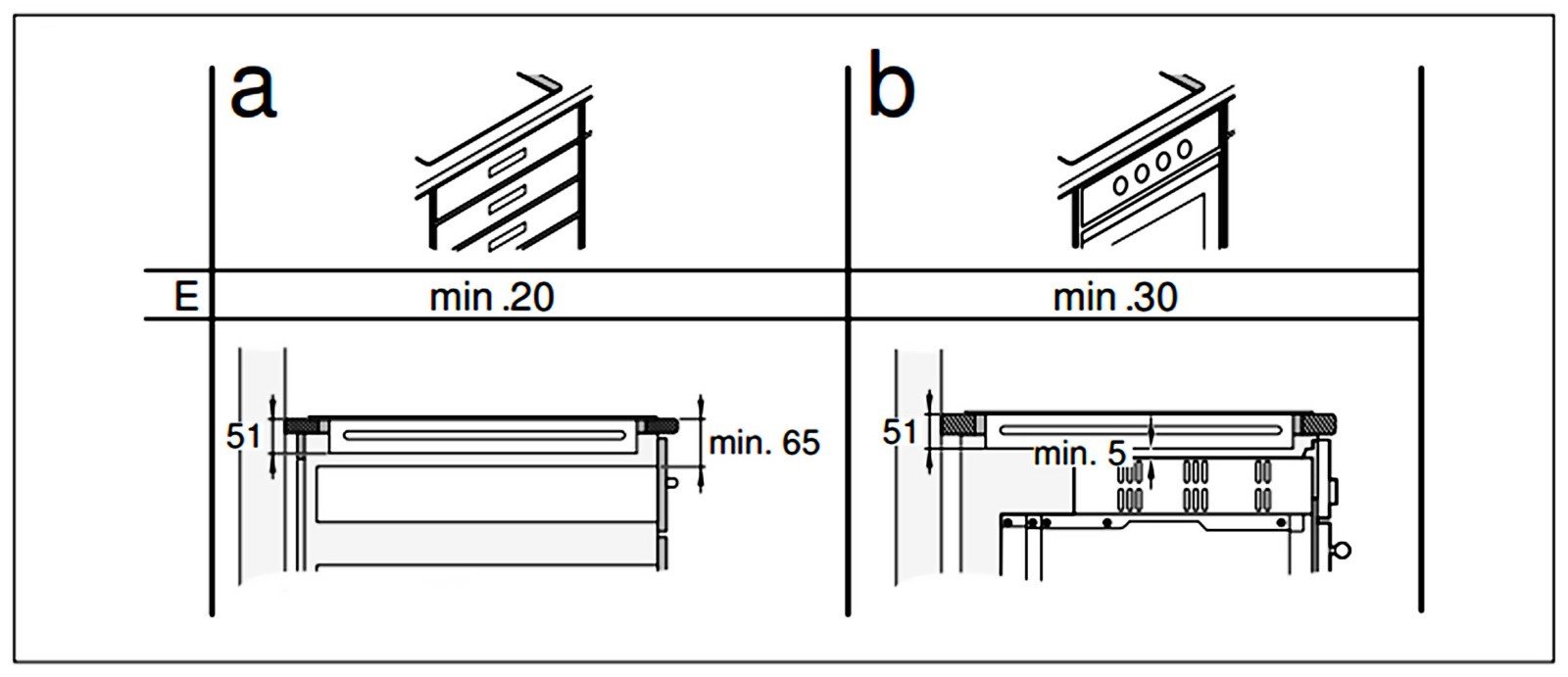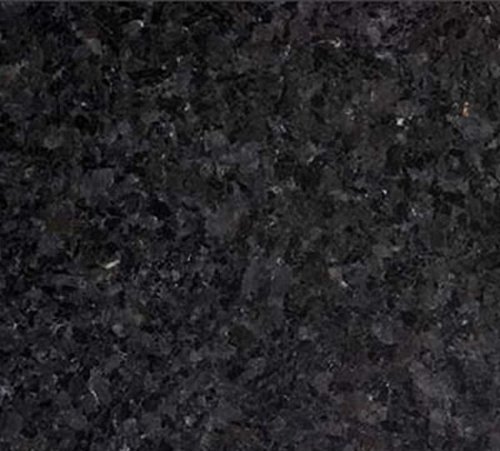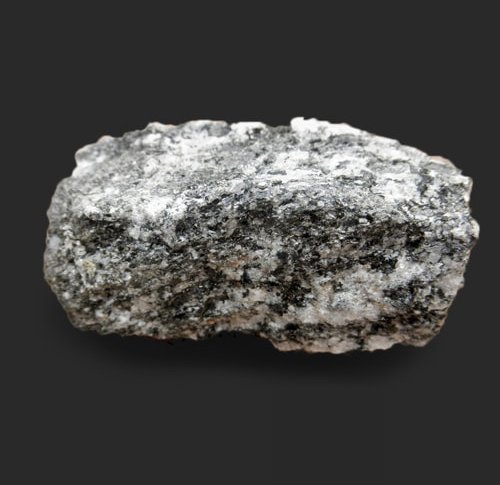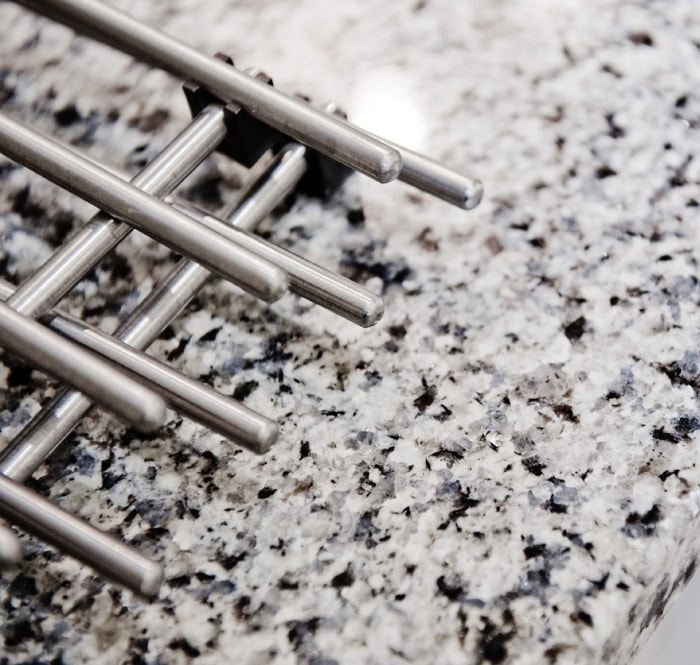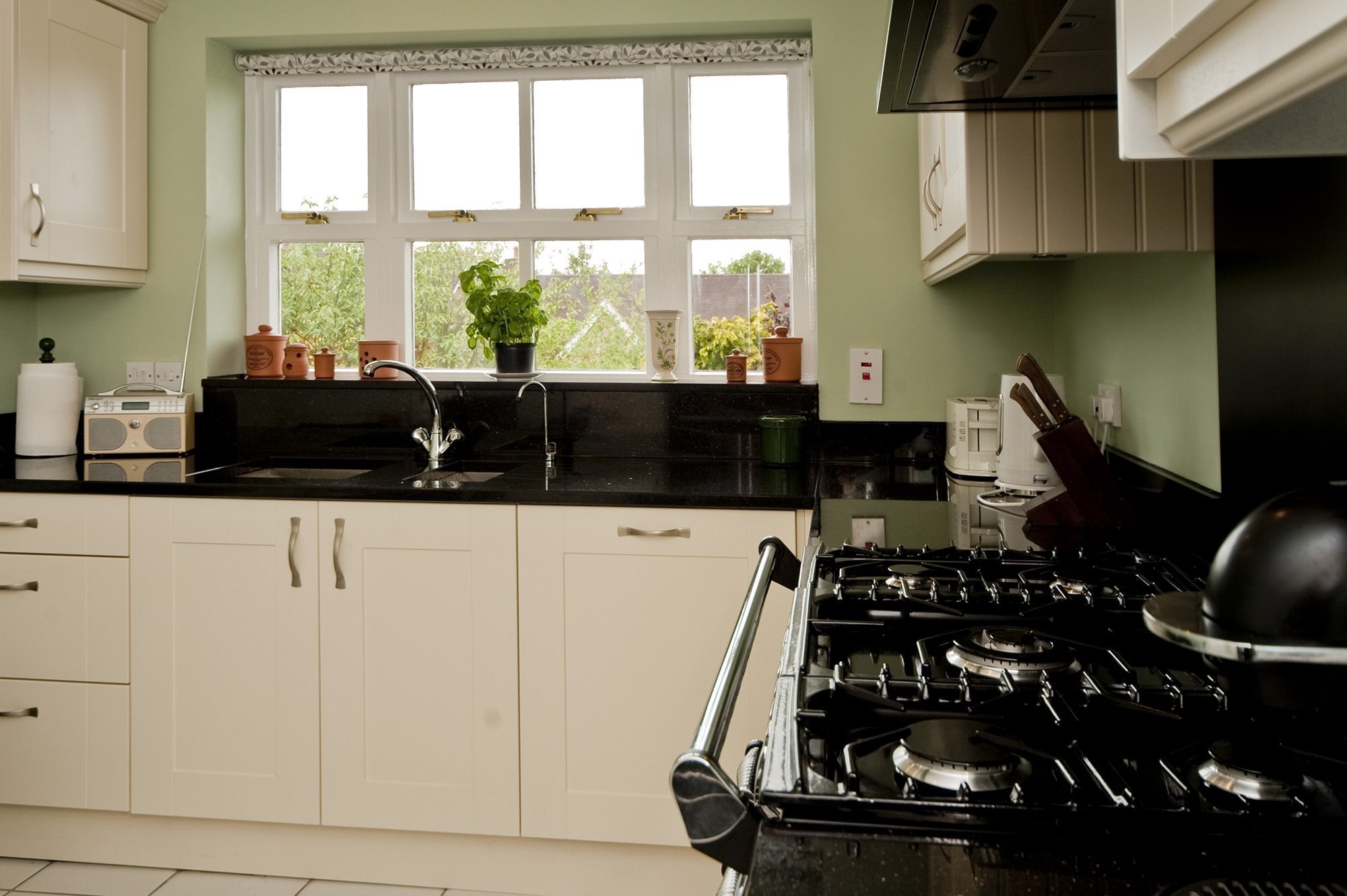So what is granite? True, geological, granite is classified as an igneous rock and is formed by the crystalisation of magma, or lava, as it cools and solidifies in the Earth’s crust.
Granite predominantly consists of the following minerals: quartz, mica, feldspar and plagioclase feldspar.
The proportion and type of each mineral give granite its unique appearance. Different conditions and mineral ingredients at individual quarry sites mean that each area produces a unique pattern and colour of stone.
What is sold as commercial “granite” covers many hard rocks that wouldn’t be called granite by a geologist. This is confusing, but is a time-honoured convention in the building industry, and there isn’t much that the geologists can do about it! The industry uses the word granite basically for any hard, polishable natural stone that isn’t marble.
For a full discussion of the practical differences between commercial “granite” and “quartz”, please see our article here.

